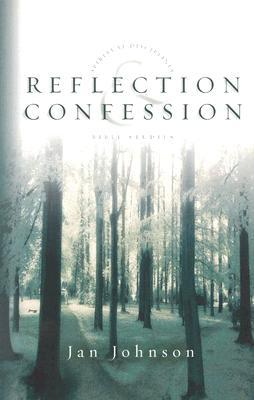

 |

|

The average rating for Reflection & Confession based on 2 reviews is 5 stars.
Review # 1 was written on 2016-06-07 00:00:00 Andrew Lindow Andrew LindowI had problems with this book. I drowned under Uberprofessor Landes' unceasing high-pressure hosepipe of facts and robust opinion like I was a stubborn fire he was trying to put out. Okay, I’m out. And feeling soggy too. Is there anything, anywhere, you don’t know or can’t fit into your book, Professor Landes? Huh? Okay, I thought not. I felt like a country mouse who’d wandered into Canterbury Cathedral. I felt like a pinball slamming around from Paraguay to the Ming Dynasty to the Spice Islands to the east End of London to the Meiji Restoration - gimme a break already. I'm exhausted! I did like his very clear and no-nonsense “geography is destiny” chapter : It [geography] tells an unpleasant truth, namely, that nature like life is unfair, unequal in its favours; further, that nature’s unfairness is not easily remedied. So, pages about how human beings find it really difficult to live reasonably well in tropical climates, because of all the horrible diseases, and because it’s so bloody hot all the time. I think this stuff gets him labelled as politically incorrect but it seemed right to me. If the tsetse-tsetse fly wrecks all your attempts at animal husbandry, such that the only way of moving goods around is by human porters, then I’m sorry, mate, but you’re stuffed. Yet it would be a mistake to see geography as destiny. (p15) What? You just proved to me it was...! Okay so this bugged me : David Landes has a theory that one of the main reasons Europe was able to generate the energies required to fuel its continual desire for improvement and learning, which co-habited with its lust for empire, was its weak central government. The idea is that if the local barons and later the local squires have a great degree of autonomy they see that effort and enterprise will benefit themselves and the overlord will not be able to steal any new wealth they create, and this is very good. They see a point in making an effort. However, to take the example of South America, the long succession of profoundly weak and unstable central governments had the opposite effect it seems, chilling and draining all innovation. Ah well, there is an explanation of course – you have to have the right kind of weak central government presiding over the right kind of pre-capitalist economy. Ah I see. (No I don’t). I know that if you have three economists in a room you will get four opinions on any given topic and all will be argued vociferously. Do these explanations actually explain anything unless you have actually mastered every fact about the economies and histories you are making these bold generalisations about? But alas, what killed this book which many people would probably admire all to hell and which is clearly worth four of anyone's stars is that I just read two books which I actually liked and I realised tell pretty much the same story - The first book was Civilisation : The West and the Rest by Niall Ferguson The Hyperactive Historian (watch him cram 55 facts into a paragraph you thought could only hold 12) – and the second was Destiny Disrupted by Tamim Answary which is the whole shebang from a Muslim perspective, an essential alternative view and is also vast and fast. So here I am readin this one and singin "Stuck Inside of Mobile with the Memphis Blues Again" to myself : And here I sit so patiently Waiting to find out the price You have to pay to get out of Going through all these things twice Or three times in my case. Why do I need this book? It occurred to me that I …. didn’t. Sorry David Landes. It was my mistake. This is a book I slunk away from. |
Review # 2 was written on 2019-07-26 00:00:00 Kenneth Prygon Kenneth PrygonRead this book in one stint during a stay at the sea. It appealed to me on a very fundamental, nerdy level as it went deep into historic details, uprooting information that was new to me. The reader spends equal time in the main text as in the footnotes - while being challenged and entertained. 'Guns, Germs and Steel' by Jared Diamond tries to explain history by looking at environmental factors and resulting positive feedback loops. Landes agrees basically that environmental factors contribute, but places at least equal value on factors like Weber's 'Protestant Work Ethic'. Don't be mislead by the 'Protestant' bit, Landes sees the influence of organized religion on science and politics as a major hindering factor in the development of civilization. Be honest, study hard, work hard. Societies build upon this principles perform better than quasi-feudal ones. Hard work must pay off, dishonesty must be punished. Landes' theory resonates with me, which is an emotional factor and completely unscientific. So maybe I just felt good that someone reinforced my personal take on the world. Still, I have travelled quite a bit through areas mentioned by him and experienced the exact cultural differences. Try to do work in Mexico and then in South Korea. Take a walk through slums in Beijing and then Sao Paulo (actually forget doing it in Sao Paulo, you will die). Coherent review this is not, but shucks, I've tried. |
CAN'T FIND WHAT YOU'RE LOOKING FOR? CLICK HERE!!!